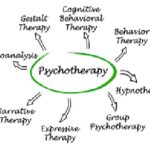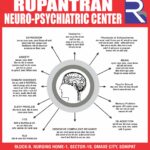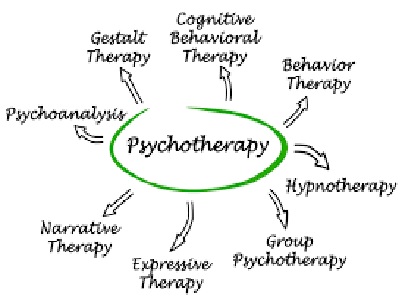
Introduction:
In the realm of mental health treatment, psychotherapy and Cognitive Behavioral Therapy (CBT) stand as two pillars,
offering profound insights and effective tools for individuals grappling with various psychological challenges.
In this blog, we’ll delve into the depths of psychotherapy and CBT, exploring their origins, principles, techniques,
effectiveness, and applications in today’s world.
Understanding Psychotherapy:
Psychotherapy, often referred to simply as “therapy, encompasses a range of therapeutic approaches aimed at helping individuals overcome emotional distress, behavioral issues, and mental health disorders.
Rooted in the works of influential figures like Sigmund Freud, Carl Jung, and Alfred Adler, psychotherapy delves into the complexities of the
human mind, emotions, and behavior.
Historical Context:
Freudian Psychoanalysis: Sigmund Freud’s pioneering work laid the foundation for modern psychotherapy with his theories on the unconscious mind, defense mechanisms, and the psychosexual stages of development.
Analytical Psychology: Carl Jung expanded upon Freud’s ideas, introducing concepts like the collective unconscious and archetypes, which remain central to Jungian therapy.
Individual Psychology: Alfred Adler focused on the role of social dynamics and the pursuit of superiority in shaping personality, paving the way for Adlerian therapy.
Core Principles:
The therapeutic relationship: Central to all forms of psychotherapy is the bond between therapist and client, characterized by empathy, trust, and confidentiality.
Insight and self-awareness: Psychotherapy aims to increase self-understanding and insight into one’s thoughts,emotions, and behaviors,
fostering personal growth and psychological resilience.
Uncovering unconscious processes: Freudian approaches emphasize bringing unconscious conflicts and desires into conscious awareness to promote healing and integration.
Techniques:
Free association: Clients are encouraged to speak freely without censorship, allowing unconscious thoughts and emotions to surface.
Dream analysis: Exploring the symbolism and underlying meanings of dreams can provide insights into unresolved issues and unconscious conflicts.
Interpretation: Therapists help clients interpret their thoughts, feelings, and behaviors in light of psychological theories and frameworks.

Cognitive Behavioral Therapy (CBT):
CBT represents a structured, goal-oriented approach to psychotherapy that focuses on the interplay between thoughts, feelings, and behaviors.
Developed in the 1960s by Dr. Aaron Beck and further refined by Dr. Albert Ellis,
CBT has emerged as one of the most widely practiced and empirically supported forms of therapy.
Theoretical Foundations:
Cognitive restructuring: CBT posits that maladaptive thoughts and beliefs contribute to emotional distress and dysfunctional behaviors.
By challenging and restructuring these cognitive distortions, individuals can alleviate symptoms and improve coping skills.
Behavioral experiments: CBT incorporates behavioral techniques such as exposure therapy and behavioral activation to help clients confront fears, test assumptions, and develop adaptive behaviors.
Collaboration and homework: Clients actively participate in therapy by completing homework assignments,
practicing new skills, and applying cognitive-behavioral techniques in real-life situations.
Core Principles:
Present-focused and solution-oriented: Unlike traditional psychoanalysis, which may delve extensively into past experiences,
CBT emphasizes addressing current problems and developing practical strategies for change.
Empirical validation: CBT relies on scientific research and evidence-based practices to guide treatment interventions, ensuring effectiveness and accountability.
Skill-building and psychoeducation:
Clients learn concrete skills for identifying and challenging negative thinking patterns, managing emotions, and modifying behaviors through
structured exercises and educational materials.
Techniques:
Cognitive restructuring: Identifying and challenging cognitive distortions such as black-and-white thinking, catastrophizing, and personalization through evidence-based techniques like Socratic questioning and thought records.
Exposure therapy: Gradual exposure to feared stimuli or situations, coupled with relaxation techniques and coping strategies, to reduce anxiety and desensitize individuals to their fears.
Behavioral activation: Encouraging engagement in rewarding activities and social interactions to counteract depression and increase feelings of pleasure and accomplishment.
Comparing Psychotherapy and CBT:
While both psychotherapy and CBT share the overarching goal of promoting psychological well-being and personal growth, they differ in their theoretical orientations, therapeutic techniques, and treatment approaches.
Philosophical Underpinnings:
Psychotherapy: Rooted in depth psychology and psychodynamic theories, psychotherapy explores unconscious processes,childhood experiences, and interpersonal dynamics to foster insight and self-awareness.
CBT: Grounded in cognitive and behavioral principles, CBT emphasizes the role of cognition in shaping emotions and behaviors, with a focus on identifying and modifying maladaptive thought patterns and behaviors.
Therapeutic Techniques:
Psychotherapy: Emphasizes techniques such as interpretation, exploration of transference, and dream analysis to uncover unconscious conflicts and promote insight.
CBT: Utilizes structured exercises, cognitive restructuring, and behavioral experiments to challenge dysfunctional beliefs and habits and
cultivate adaptive coping strategies.
Treatment Duration and Focus:
Psychotherapy: Typically long-term and exploratory in nature, psychotherapy may delve into a client’s past experiences and relational patterns to address underlying issues and facilitate deep-seated change.
CBT: Often briefer and more focused on symptom reduction and skill-building, CBT targets specific problems and utilizes structured interventions to achieve measurable outcomes within a relatively short timeframe.
Effectiveness and Applications:
Both psychotherapy and CBT have demonstrated efficacy in treating a wide range of mental health conditions, including depression, anxiety disorders, post-traumatic stress disorder (PTSD),and eating disorders.
Moreover, they have been adapted and integrated into various settings and populations, including:
Individual Therapy: Traditional one-on-one therapy sessions provide a supportive and confidential environment for clients to explore their thoughts, feelings, and behaviors with a trained therapist.
Group Therapy: Group settings offer opportunities for interpersonal learning, social support,and skills practice, particularly in areas
like anger management, addiction recovery, and interpersonal effectiveness.
Couples and Family Therapy: Therapeutic interventions involving
couples or family members aim to improve communication, resolve conflicts, and strengthen relationships by addressing underlying dynamics and patterns of interaction.
Specialized Populations: Psychotherapy and CBT have been adapted for specific populations, such as children and adolescents, older adults,
LGBTQ+ individuals, and individuals with co-occurring disorders, tailoring interventions to meet their unique needs and experiences.
Conclusion:
Psychotherapy and Cognitive Behavioral Therapy represent two complementary approaches to mental health treatment, each offering valuable insights and evidence-based techniques for promoting emotional well-being and personal growth.
Whether delving into the depths of the unconscious mind or challenging cognitive distortions and maladaptive behaviors, therapy provides a safe and supportive space for individuals to explore, heal, and transform their lives.
As the field continues to evolve and innovate, the integration of diverse therapeutic modalities and the expansion of access to mental health services hold promise for a more holistic and inclusive approach to psychological care.

Contact Us
Contact Rupantran Neuropsychiatric Center for comprehensive mental health care. Our dedicated team offers personalized treatment plans for various conditions, including depression, anxiety, and addiction. With compassionate support and evidence-based therapies, we prioritize your well-being. Reach out today for expert guidance towards a healthier mind and life.
